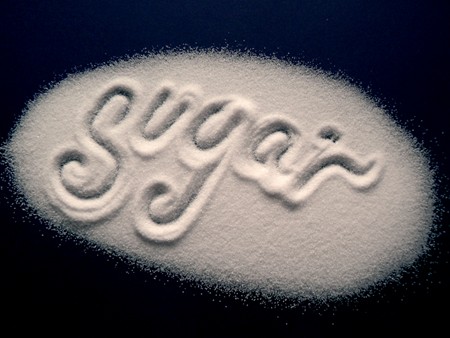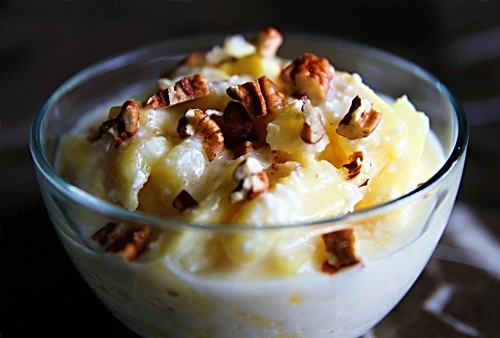
I am so sad to report this, but report it I must The Glycemic Research Institute® announced that they have legally “De-Listed” and placed a ban on Agave for use in Foods, Beverages, Chocolate, and any other products, due to results of 5 years of Human In Vivo Clinical Trials on Agave.
Manufacturers who produce and use Agave in products are now warned that they can be held legally liable for negative health incidents related to ingestion of Agave.
The Medical Advisory Board of the Glycemic Research Institute® (GRI) made the decision to halt all future clinical trials involving Agave as a result of the latest round of GRI Human In Vivo Clinical Trials, in which the diabetic subjects experienced severe and dangerous side effects related to the oral ingestion of the sweetener Agave.
This announcement came as a surprise to the scientific community, and has generated hundreds of inquiries involving the safety of ingesting Agave.
Physicians and diabetes health educators are now being advised to caution their diabetic patients, both adults and children, about the use of Agave.
This is NOT Just an Issue for Diabetics
This also applies to persons with Metabolic Syndrome, Insulin Resistance, and Pre-Diabetes. The medical community believes that up to 70% of the American public has some form of Insulin Resistance, due to the rise in obesity and weight gain.
The ban on Agave includes “The use of Agave as a sweetener and/or syrup, as found in foods, beverages, Nutraceuticals, chocolate, and any other consumable product.”
The Glycemic Research Institute® Agave trials, as well as other independent data and research, demonstrate that diabetics respond differently to oral ingestion of Agave than non-diabetics and persons with normal glycemic responses.
The Biology
The biochemical reason is that all cells in the body, including liver, muscle, and brain cells, are dependent on glucose as fuel. Glucose is not capable of diffusing from the bloodstream into the cells, and requires specialized proteins (not dietary protein) to transport it across cellular membranes.
Insulin is the catalyst for the cell-transporters that deliver glucose into heart, muscle, and fat cells. Excess insulin causes adipose tissue fat storage via Lipoprotein Lipase (LPL), so foods and beverages that stimulate insulin cause weight gain and obesity. This explains why Type 1 diabetics (lack of insulin) are thin and Type 2 diabetics (excess insulin) are almost always overweight or obese.
The brain, however, works on a different fuel-basis. Glucose can get into the brain to act as fuel (glucose-transport), while insulin cannot, and fat-storage in the brain is not an option. The Blood-Brain-Barrier (BBB) is the watch-dog in the brain that is responsible for regulating the amount of sugar/glucose going to cells inside the brain. The BBB only allows very specific agents to enter the brain by crossing the Blood-Brain-Barrier (BBB).
In diabetics, muscle cells cannot obtain sufficient energy to function normally, because the diabetic’s ability to properly produce and/or utilize insulin is impaired. Diabetic serum levels of glucose are consistently over-elevated, yet muscle cells are stressed and starving.
Diabetics using insulin-treatments (medication) often experience excess insulin stimulation and uptake, resulting in insufficient levels of glucose in the bloodstream.
Imbalances in blood glucose and insulin levels are the standard trademark of a diabetic patient. In type 2 diabetes (by far the most common form of diabetes), high blood glucose levels cause weight gain and obesity, which exacerbates insulin resistance, risk of cardiovascular disease, and shortened life span. High insulin levels further trigger weight gain and obesity, as well as a myriad of health problems.
These imbalances are problematic in the diabetic, as every food, meal, snack, beverage, or orally ingested agent, causes a glycemic reaction, ranging from mild to severe.
Health Ramifications
High glycemic foods, beverages, and sweeteners stimulate high levels of serum glucose, which makes diabetics susceptible to neurological and physical problems, including stroke and memory loss.
In a hyper-insulin state, which is triggered by ingesting foods, beverages, and sweeteners that over-stimulate insulin, muscle cells take up all of the available glucose, thus depriving the brain of sufficient fuel.
This causes severe Metabolic Low Blood Sugar, resulting in wooziness, poor motor and thinking function, extreme lethargy, and in many cases, lack of consciousness (fainting/passing out).
Even foods and beverages that claim No-Calories, No-Carbs, cause a reaction in the diabetic and pre-diabetic.
This is because the human brain has to contend with high and low levels of glucose in the blood stream. Severe imbalances, including very low levels of glucose, and reactive hypoglycemia, can place diabetics in a precarious physical condition, in which there is literally a “brain shut-down.”
This type of metabolic cascade causes severe diabetic reactions, including passing out – even behind the wheel of a car while driving, and explains why oral ingestion of Agave induces potentially dangerous metabolic states in diabetics.
In Summary
Diabetics and persons with any insulin-related disorder, including Pre-Diabetes and Insulin Resistance, are urged to use extreme caution as related to oral ingestion of Agave and Agave sweeteners and syrups. You can read the full report and more on the Glycemic Research Institutes website.
A Healthy Kitchens Stand
As I said in the beginning, I am saddened by this news. There have been opinionated rumblings regarding agave nectar for quite some time. Ive read many a blog post about whether its considered safe or not whether its any better than High Fructose Corn Syrup or not how the body reacts to all the fructose in agave, etc. Ive held a fairly neutral position because I hadnt found concrete evidence enough to take a strong stance. Thats no longer the case. The evidence is in and its indisputable. Over the next short period of time I will be testing and transitioning all of my recipes that currently contain agave towards my new favorite sweeteners made by Coconut Secrets.
If you come across a recipe that has not yet been changed, please be sure to post a comment so I can get to asap.
Peace, Love, and Healthy Sweets!










Leave a Reply